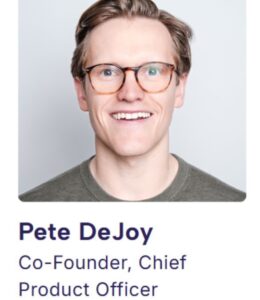In the fast-paced world of corporate leadership, where trust and integrity are paramount, a single misstep can unravel years of success. Such is the case of Andy Byron, the former CEO of Astronomer, a New York-based data infrastructure company. In July 2025, Byron found himself at the center of a viral scandal that not only cost him his position but also ignited a firestorm of public scrutiny and workplace criticism. A seemingly innocent moment captured on a jumbotron at a Coldplay concert in Boston spiraled into a tale of betrayal, exposing allegations of an affair with the company’s Chief People Officer, Kristin Cabot. The fallout was swift: Byron was placed on leave, resigned shortly after, and faced a barrage of accusations from former employees who reveled in his public humiliation. This article delves into the events leading to Byron’s downfall, the workplace culture at Astronomer, and the broader implications of leadership accountability in the corporate world.
The Viral Moment That Sparked “ColdplayGate”
On July 16, 2025, during a Coldplay concert at Gillette Stadium in Foxborough, Massachusetts, a routine “kiss cam” segment turned into a corporate catastrophe. A video, captured by concertgoer Grace Springer and posted on TikTok under the handle @Instaagrace, showed a man and woman in a cozy embrace. The man was quickly identified as Andy Byron, Astronomer’s CEO, and the woman as Kristin Cabot, the company’s Chief People Officer. As the jumbotron displayed their image to over 65,000 attendees, the pair panicked. Byron ducked behind a barrier, while Cabot attempted to shield her face. Coldplay frontman Chris Martin, unaware of the gravity of the situation, quipped, “Either they’re having an affair, or they’re just very shy,” before expressing regret, saying, “Oh s–t, I hope we didn’t do something bad.”

The video exploded online, amassing over 74 million views on TikTok alone and spreading across platforms like X, Reddit, and Instagram. Social media users swiftly identified Byron and Cabot, fueling speculation about an extramarital affair. Byron, married to Megan Kerrigan Byron and a father of two, faced immediate backlash. His wife reportedly changed her last name on Facebook before deactivating her account, overwhelmed by comments from strangers expressing sympathy and urging her to seek a divorce. The incident, dubbed “ColdplayGate,” became a cultural phenomenon, with memes, Coldplay lyric puns, and sarcastic commentary flooding social media. One X post mockingly asked, “What’s worse, your partner cheating or being a Coldplay fan?”
Astronomer’s Response and Byron’s Resignation
Astronomer, a software company valued at over $1 billion and known for its data orchestration platform, was thrust into an unwanted spotlight. On July 18, the company announced that it had launched a formal investigation into the matter and placed both Byron and Cabot on administrative leave. Co-founder and Chief Product Officer Pete DeJoy was appointed interim CEO. A day later, on July 19, Astronomer issued a statement confirming Byron’s resignation: “Andy Byron has tendered his resignation, and the Board of Directors has accepted. The Board will begin a search for our next Chief Executive as Pete DeJoy continues to serve as interim CEO.” The company emphasized its commitment to “values and culture” and stated that leadership had failed to meet its standards of conduct.


Astronomer’s response was carefully worded, avoiding direct mention of the Coldplay concert but acknowledging the breach of accountability. The company also clarified that fake statements attributed to Byron, including one humorously confessing to being a Coldplay fan and another blaming the band for violating his privacy, were not authentic. Despite the company’s attempts to control the narrative, the silence from Byron and Cabot only intensified public curiosity and criticism.
A Toxic Workplace Unveiled
The scandal did more than expose an alleged affair; it reignited claims of a toxic work environment at Astronomer. Former employees seized the opportunity to voice their grievances, painting Byron as an aggressive, sales-obsessed executive. One ex-employee, speaking anonymously to the New York Post, described Byron as a “toxic boss” whose leadership style fostered fear and intimidation. “The text groups and chains of former employees are like… everybody’s laughing their ass off and enjoying the hell out of what happened and him getting exposed,” the employee said.
These sentiments echoed a 2018 report by The Information about Byron’s tenure as Chief Revenue Officer at Cybereason, where he was accused of creating a toxic workplace. Former Cybereason employees alleged that Byron’s relentless pressure to make the company the “fastest-growing” led to high turnover, with defectors replaced by loyalists from his previous employer, Fuze. Byron defended himself at the time, claiming his role required “tough decisions” but denied misconduct. The resurfacing of these allegations in 2025 amplified the narrative of Byron as a problematic leader, with social media users criticizing the irony of Cabot, who boasted on LinkedIn about “earning the trust of CEOs,” being involved in the scandal.
The presence of another Astronomer employee, Alyssa Stoddard, in the viral video added fuel to the fire. Stoddard, recently promoted by Cabot, was seen smiling knowingly as Byron and Cabot attempted to hide, raising questions about favoritism and blurred professional boundaries within the company. Social media users speculated that the leadership was aware of the alleged affair, further eroding trust in Astronomer’s workplace culture.
The Personal Toll: Megan Kerrigan Byron and Public Sympathy
The scandal’s most poignant impact was on Megan Kerrigan Byron, Andy’s wife and an educator at Bancroft School in New York. As news of the alleged affair spread, her Facebook page was flooded with supportive messages from strangers. Comments like, “You don’t deserve this,” and “Go Megan, get that divorce lawyer,” reflected widespread sympathy for her as the “real victim” of the incident. Megan reportedly removed “Byron” from her profile before deactivating her account, a move interpreted as a sign of personal turmoil.
The public’s response highlighted a broader societal fascination with corporate scandals, particularly those involving personal betrayal. While some expressed empathy for Megan, others reveled in the schadenfreude of Byron’s downfall. Posts on X captured the sentiment, with one user stating, “Good riddance & beware of this CHEATER, he’ll soon be looking for another job & someone else to put the moves on!” The viral nature of the scandal underscored the power of social media to amplify personal and professional missteps, turning a private moment into a public spectacle.
Broader Implications for Corporate Leadership
The “ColdplayGate” saga raises critical questions about leadership, accountability, and workplace dynamics. Byron’s alleged affair with Cabot, the head of HR, highlighted the risks of personal relationships in professional settings, particularly when they involve senior executives. The incident sparked discussions about the need for clear policies on workplace relationships and the importance of maintaining trust among employees. Astronomer’s swift action in launching an investigation and accepting Byron’s resignation suggests an attempt to restore credibility, but the company’s initial silence and vague statements drew criticism for lacking transparency.
Moreover, the scandal exposed the vulnerabilities of leaders in the digital age. The viral spread of the concert video, amplified by Chris Martin’s offhand comment, demonstrates how quickly private moments can become public fodder. For executives like Byron, whose careers depend on public perception and investor confidence, such incidents can be career-ending. Astronomer, which secured $93 million in funding in May 2025, now faces the challenge of rebuilding its reputation as it searches for a new CEO.
The reaction of former employees also underscores the lasting impact of toxic leadership. The glee expressed by ex-staffers suggests deep-seated resentment, pointing to systemic issues within Astronomer’s culture. Companies must prioritize fostering inclusive, transparent environments to prevent such backlash and ensure employee loyalty.



